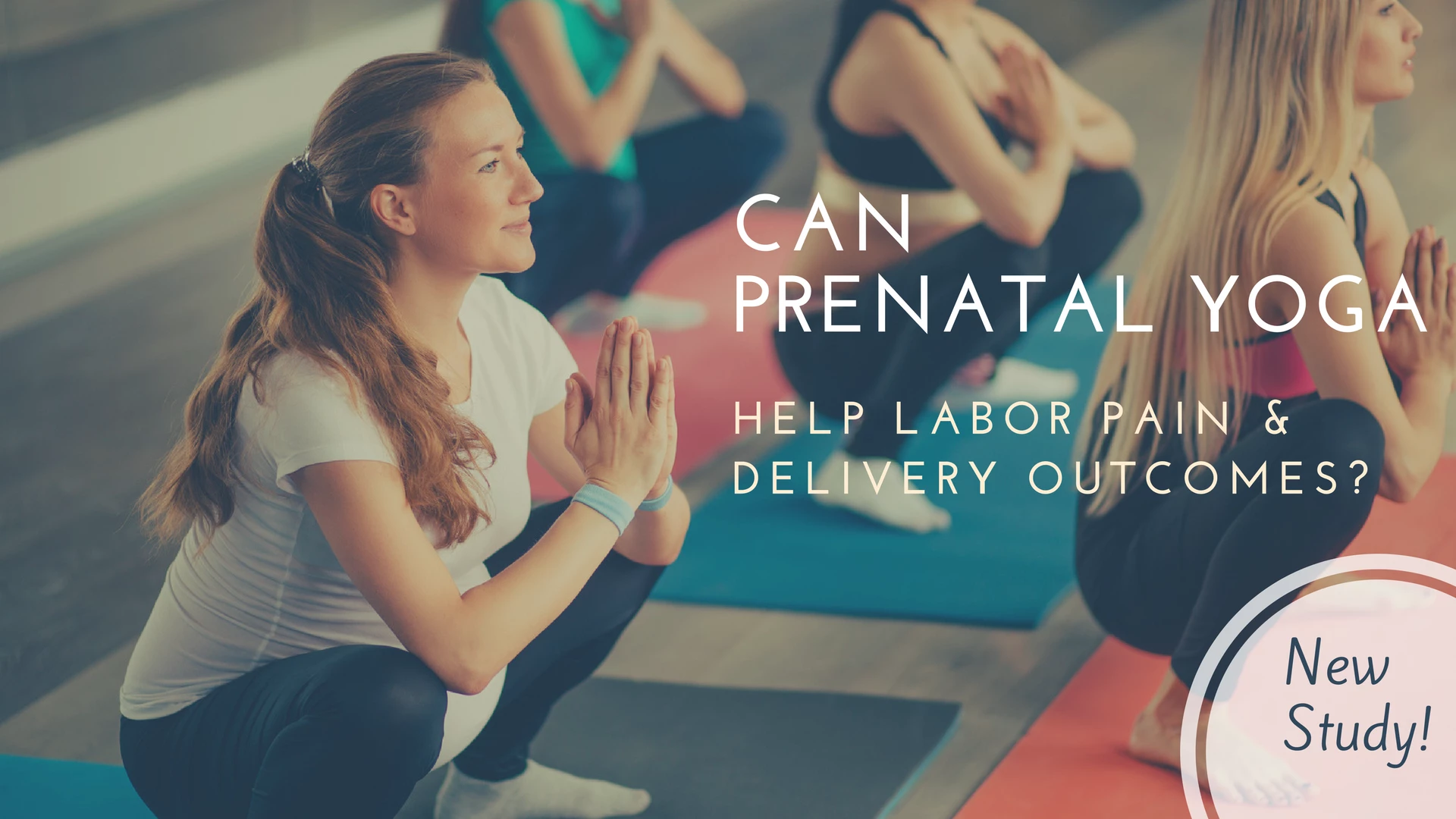New Study: Can Prenatal Yoga Help Labor Pain and Delivery Outcomes?

Childbirth is often described as “a miracle,” yet it is also one of the most physically stressful events that can take place in a woman’s life.
Can the practice of yoga during pregnancy support the health of mother during labor? Prenatal yoga helps strengthen and increase the flexibility of the perineum and vaginal muscles, and, one might speculate, these well toned muscles could result in a smoother labor.
Indeed, results from a new study suggest prenatal yoga has positive effects on both labor pain and delivery outcomes.
Prenatal Yoga as a Healthy Option for Pain Management in Labor
The unique pain of labor is complex and multifaceted, but managing the pain has been correlated with increased maternal satisfaction, as well and improved bonding between mothers and their newborn child.
Unfortunately, the most common approach to pain management for women in labor is pharmaceuticals, which can have negative side effects for both baby and mom. In search of better options, researchers have been examining prenatal yoga as an alternative option for pain management during labor.
New Study Charts the Benefits of Yoga on Labor Pain
A new randomized controlled study published in Complementary Therapies in Clinical Practice offers initial evidence that prenatal yoga may indeed help reduce labor pain in women giving birth.
The study recruited 60 healthy, primiparous (first time having a child) women with no prior experience of yoga, Pilates or Tai Chi. The women were randomly assigned to either the control group or the intervention group.
Participants in the intervention group were instructed in the five components of yoga practice: yoga asanas, chanting om, breath awareness, yoga Nidra, and Dhyana. Starting at the 26th week of gestation, they practiced a 1-hour supervised yoga class three times weekly until their 37th week of gestation.
To assess the benefits of yoga, researchers measured labor pain using the Visual Analogue Scale three times during the women’s labor: at 3-4 cm cervical dilation, 2 hours later, and again 2 hours after that.
Study Results Show Yoga May Help Labor Pain & Delivery Outcome
The study found that when compared to the control group, women in the yoga group:
-
experienced significantly lower lower levels of pain intensity at all three times of labor pain measurement
-
had a lower frequency of labor induction
-
had a lower percentage of cesarean sections
-
Experienced shorter durations of the 2nd and 3rd stages of labor
In light of these results, researchers suggest that, “as a result of well-toned muscles by performing yoga during pregnancy, women have more energy and are more relaxed.” They note that the perineum and vaginal muscles are strengthened and made more flexible through the practice of yoga, which could result in a smoother labor.
Studies like this provide valuable scientific support for yoga as a non-pharmacological option for labor pain management. The physical practice of yoga can improve the mother’s strength and flexibility while the mindfulness aspect of yoga can concurrently increase the mother’s ability to become in tune with her body and its responses to labor.
Source:
Jahdi, F., Sheikhan, F., Haghani, H., Sharifi, B., Ghaseminejad, A., Khodarahmian, M., & Rouhana, N. (2017). Yoga during pregnancy: The effects on labor pain and delivery outcomes (A randomized controlled trial). Complementary Therapies in Clinical Practice, 27(May), 1-4. Retrieved September 18, 2017, from http://www.sciencedirect.com/science/article/pii/S1744388116302316



